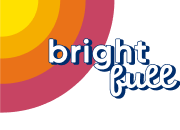What if I told you that the same focus you experience while playing some engaging games could be harnessed to boost your concentration? In this article, we’ll explore various exercises designed to sharpen your focus and support cognitive function (Goldman, 2021).
The power of crossword puzzles
One of the most well-known brain exercises is the crossword puzzle. These word games are more than just a pastime; they could be a powerful tool for boosting memory and thinking. This mental stimulation could help keep your brain sharp, stay active and create both new and good connections in your brain (Budson, 2022).
Crossword puzzles require sustained attention to detail, which could translate to good focus in other areas of your life. As you search for the right words, your brain could strengthen, particularly in those areas associated with memory and verbal skills (Budson, 2022).
Brain-training games: more than just fun
While crossword puzzles are a classic choice, many other brain-training games are designed to help you boost your focus. Games that challenge your working memory, like card games, or those that require quick decision-making, like chess, could prevent memory decline. These games train your brain to process information more efficiently, creatively and flexibly (Salamon & Golen, 2023).
Another option you could try is Sudoku puzzles! Playing these types of games could help you achieve higher levels of attention, reasoning, and memory. You could start by playing a different kind of game each day, increasing the level of difficulty as you develop your skills (Godman, 2021).
Sharpen your memory
In addition to these types of games, there are other ways you could keep mentally stimulated. Some activities make our brains work harder to produce or process information. For instance, learning a new language could delay cognitive decline by providing greater mental agility; while listening to music or learning how to play an instrument could activate different regions of the brain, such as those involved with emotion and memory (Godman, 2021).
Combining physical exercise with mental workouts
It’s not just mental exercises that could boost your focus; physical activity could also play an important role, as it could help to increase your brain health. According to Harvard Health, we need at least 150 minutes of moderate or 75 minutes of vigorous activity each week for the activity to be beneficial (Salamon & Golen, 2023).
Moreover, integrating social activities into your weekly routine, like a quick walk with a friend or any type of meeting, could help activate large areas of your mind. These breaks allow us to rest and recharge energy from our everyday chores (Salamon & Golen, 2023).
Which game are you playing today?
By incorporating some of these tips, you could potentially strengthen healthy habits. These activities could contribute to long-term mental sharpness, helping you stay productive in all areas of your life (Salamon & Golen, 2023).
Sources:
1. Budson, A. (2022, November 29). Have you done your crossword puzzle today? Harvard Health. https://www.health.harvard.edu/blog/have-you-done-your-crossword-puzzle-today-202211292857
2. Godman, H. (2021, March 29) Simple, low-cost, low-tech brain training. Harvard Health. https://www.health.harvard.edu/blog/low-cost-low-tech-brain-training-2021032922247
3. Salamon, M., Golen, T. (2023, October 1). Mastering memory maintenance. Harvard Health. https://www.health.harvard.edu/mind-and-mood/mastering-memory-maintenance


